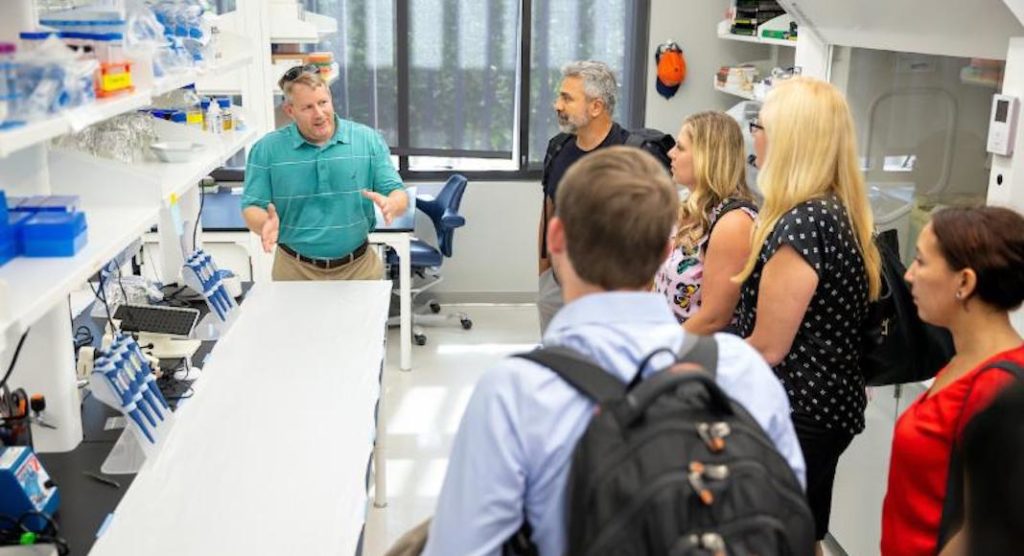
Mega Doctor News
By Victoria Brito
EDINBURG, TEXAS – UTRGV kicked off the third annual progress meeting for the Western Gulf Center of Excellence for Vector-Borne Diseases, June 20 on the Edinburg Campus.
Vector-borne diseases are illnesses caused by living organisms – like fleas, ticks,
The UTRGV Center for Vector-Borne Diseases, in collaboration with the Centers for Disease Control and
The two-day meeting, held at the Medical Education Building on the Edinburg Campus, featured scientists and researchers who presented updates on a variety of projects, as well as on recent efforts to enhance outreach, education, training and research initiatives.
Dr. Janna Arney, deputy president of UTRGV, updated the group on what the university’s ongoing research and stressed the importance of studying vector-borne disease in the Rio Grande Valley.
“We are considered high risk for vector-borne diseases, an area of science that has an impact on our region,” Arney said. “We are honored to be partnering with experts across the state because
AN UPDATE FROM THE CDC
The keynote speaker on Thursday was Dr. Chris Paddock, a CDC pathologist and rickettsiologiist who specializes in tick-borne rickettsioseslike Rocky Mountain spotted fever, which is rare. Still, as recently as 16 years ago, two new diseases and four new vectors have been recognized, he said.
“We have since discovered an expansion of recognized diseases and vectors,” Paddock said.
One of the newly discovered diseases was tick-borne rickettsia– infections caused by a variety of bacterial species from the genus.
“As it turns out, these ticks are most abundant in remote areas on the Texas-Mexico border, and most of the people affected by rickettsia are Border Patrol agents,” he said.
Tick-borne rickettsia in western North America are considerably more complex than previously believed, Paddock said, and there are numerous opportunities in Texas alone for research.
THE IMPORTANCE OF COLLABORATION
Dr. Christopher Vitek, UTRGV associate professor of biology, said the meeting serves as an opportunity to highlight what UTRGV and other institutions are doing in the field of vector-borne disease research.
“UTRGV is an active participant, and we are ready to step onto the main research stage and add to these projects with our expertise,” he said. “It also is good for people who are not from Texas to see what we are doing here.”
He updated the group on how UTRGV is teaching vector-borne topics with his presentation on medical entomology, which highlights teaching as a career in the study of insects and arthropods that impact human health.
With academia broken into research, service and teaching, he said, UTRGV professors are required to teach six courses per year. To maximize resources, Vitek said, he brings teaching into the lab through his research.
“Your lab work depends on the students that you have, which is why I am happy to say I have very productive, very enthusiastic, and motivated students,” he said.
VIGILANCE AT UTRGV
Both Vitek and Dr. John Thomas, UTRGV assistant professor of biology, are part of UTMB’s Western Gulf Center for Excellence for Vector-Borne Disease, a multi-institutional consortium aimed to enhance Zikavirus surveillance efforts in cooperation with local public health and vector-control agencies.
They also are part of the UTRGV Center for
The UTRGV center’smulti-disciplinary focus encourages research collaboration and cooperation between students, researchers,
The event continued Friday, June 21, with presentations from Thomas and Vitek on their South Texas surveillance research, city,










